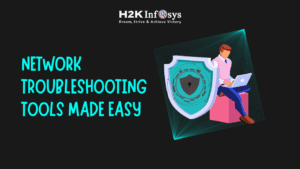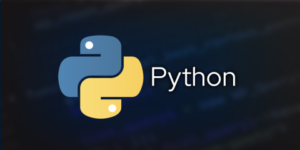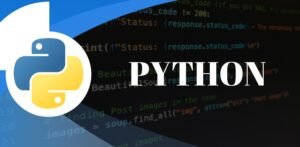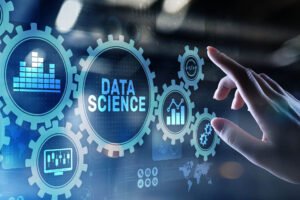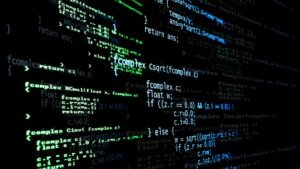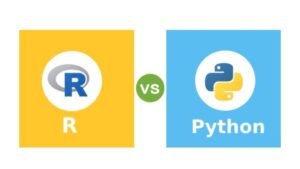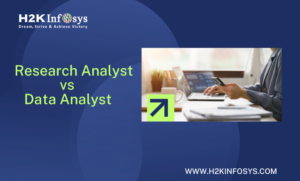What could possibly connect a software engineer with a data scientist? Much more than you might think (they both might be data scientists)!
A data scientist needs a broad range of abilities. The best way to obtain them is through a data science degree or certificate program, which offers the advanced training required to carry out the demanding responsibilities of the position. There are, however, some professions that can offer sufficient orientation to make this shift a practical and enticing choice.
Careers in the healthcare, financial, accounting, mechanical, software, consulting, and marketing sectors are a few examples of those where people frequently possess skill sets that are transferable to the data science field. These sectors at least provide their employees with the knowledge and abilities to qualify for an entry-level data science position.
Many industries can make the switch to data science. This is in part due to the fact that data science is now present in almost all sectors of the economy and is only set to increase. There is a growing demand for data scientists across all industries as more and more large-scale institutions increasingly rely on massive amounts of data at all times. You can get more information about Data science by checking out the Data science online course.
Why pursue a career in data science?
It’s reasonable to ponder what the benefits of switching to a completely other profession may be if you already have a high-paying job. The data science profession’s exceptional financial success is the solution.
Big data has been a rapidly growing discipline for decades and has become essential to practically every form of company strategy you can imagine.
For individuals with the necessary talents, being a data scientist is a lucrative and fulfilling career path because of their tremendously valued and in-demand skills.
This article will provide you with all the information you need to get started if you have experience in any of the aforementioned industries and are thinking about switching to a career in data science. It will outline the skills you may already have acquired in your current position as well as those you may still need to develop before moving on to the next stage of your career.
Software Engineer to Data Scientist Transition
Software engineering and data science are remarkably similar to one another.
In data science, analysts and scientists are responsible for ensuring the proper operation of institutional datasets and, in some situations, for deploying datasets to design systems that enable such functionality.
Similar datasets are used by software engineers to create software systems through rigorous testing and machine learning techniques.
Software engineers are the most qualified candidates for making the transition to a career in data science since they have an exceptional foundation in quantitative reasoning and its practical application with massive datasets.
However, data engineering positions are the ones that software engineers should ideally pursue in the field of data science.
Switching From Mechanical Engineering to Data Science
Mechanical engineers, as described by the Bureau of Labor Statistics, “design, develop, build, and test mechanical and thermal sensors and devices.” This employment has a broad definition but can be loosely categorised as engineers.
Therefore, we should conceive of mechanical engineers as having a big wrench that can be utilised to solve a variety of real-world issues in all industries.
Mechanical engineers are therefore in charge of maintaining the hardware or software-based equipment that corporations rely on to function, leveraging their strong physics expertise.
Mechanical engineers will need to acquire new programming languages and critical-thinking paradigms in order to succeed in data science. When teaching the highly mathematical subject of statistics, this talent is also developed.
Anyone with experience in applied mathematics, such as mechanical engineering, ought to think about making the transition to a job in data science. This skill set will offer them a significant academic advantage.
Data Science Career Transitioning
Data scientists are renowned for using modern analytical tools to modify data and their knowledge of advanced analytics to assist businesses and individuals in making better decisions.
In fact, earning a degree is the best way to obtain this combination of abilities.
While a number of similar professions, such as marketers, consultants, software engineers, mechanical engineers, accountants, fixed-income analysts, and medical scribes are particularly well-suited to make the leap to data science, doing so ultimately requires obtaining a data science degree.
This is due to the fact that experience will only go you so far in a career in data science—not much beyond an entry-level position.
You can only acquire the fundamental skills necessary to be considered for high-level positions in the industry of your choice with a Master’s in data science.
Students who want to pursue a career in data science should review basic maths concepts and quantitative reasoning before looking at online programming language courses and applying to programs.
Getting a head start is always a smart idea. Only by studying in your spare time or having the necessary information to be ahead can you achieve it in school.
Taking the next steps to transition into a data science career
As you can see, many professions share duties and skill sets with the rewarding and interesting labour that goes into big data. There has never been a better opportunity to enter the field of data science, whose long-term boom shows no signs of slowing down.
Conclusion Check out the Data science training online to learn how you can seamlessly transition to becoming a Data scientist.



